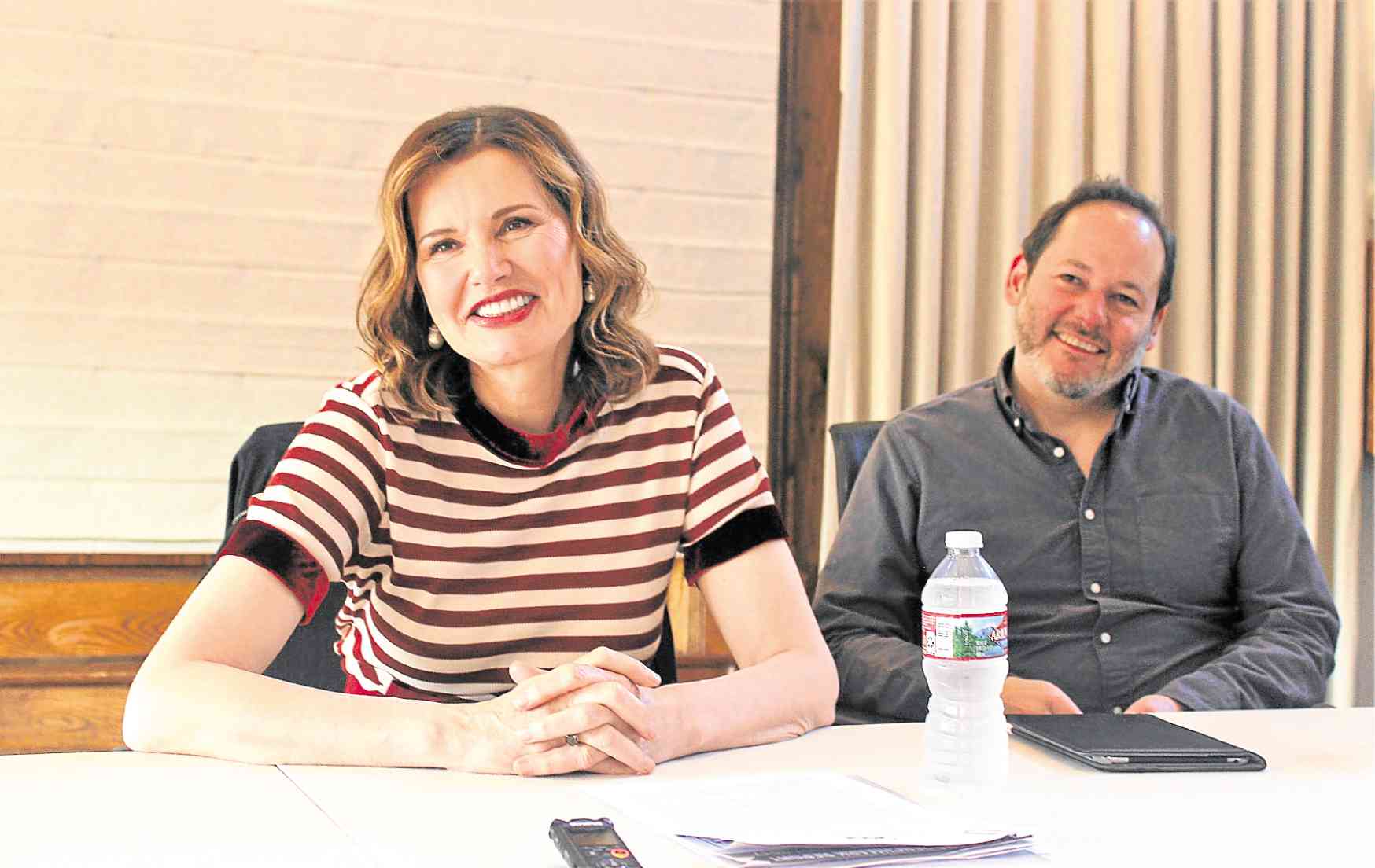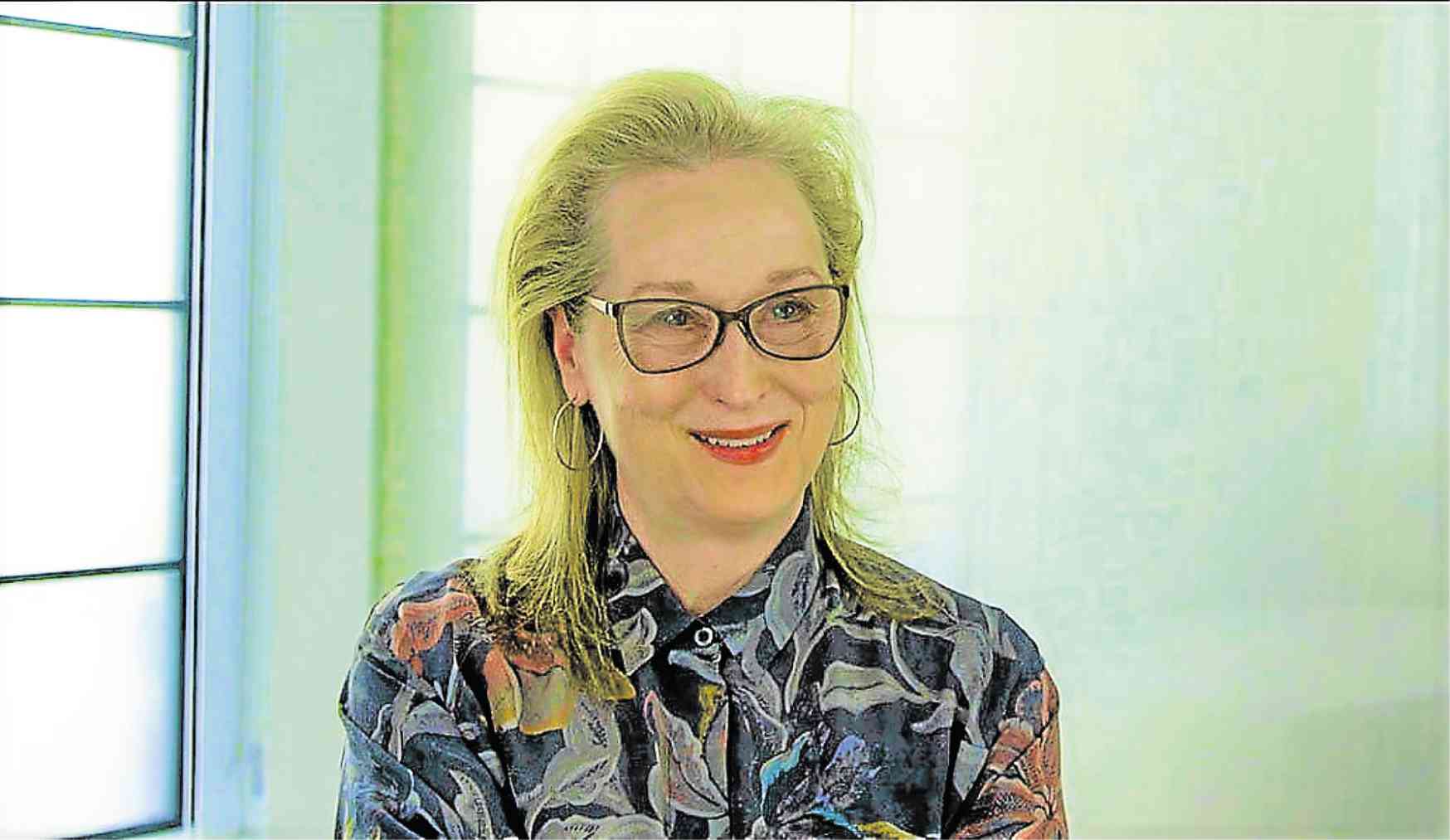‘What would Geena Davis say?’
LOS ANGELES—It’s a source of pride for Geena Davis, who has been fighting gender inequality and championing diversity in Hollywood, that some producers now ask when they cast actors and crews for their forthcoming projects, “What would Geena Davis say?”
Since discovering the gender disparity even in children’s videos when she was watching one with her daughter, then a toddler, Geena has been a passionate advocate against gender imbalance in the workplace, especially in entertainment productions.
The actress, who broke through with her role in “Thelma & Louise,” founded the Geena Davis Institute on Gender in Media, which funded a 20-year research on gender representation in media. The research found a great disparity between roles for men and women.
Geena, as producer, partnered with director Tom Donahue to make the documentary “This Changes Everything,” which examines sexism in Hollywood and features interviews with actors, from Meryl Streep, Sandra Oh and Jessica Chastain to Sharon Stone, executives and artists.
“It’s amazing how many huge stars were in this movie and said, ‘yes,’” enthused Geena, who came to this interview in West Hollywood with Tom. The latter filmmaker’s credits include “Thank You for Your Service” and “Casting By.”
The founding member of the Time’s Up movement added, “This is definitely a new era where it’s OK for me, everybody and my peers to talk about it publicly.
“Gillian Anderson finds out she is getting a lower salary—bam, it’s in the press. This is stuff that none of us wanted to talk about before. When Sharon Stone doesn’t get roles—she talks about it.”

Sharon Stone in the documentary “This Changes Everything” —PHOTO COURTESY OF CREATIVE CHAOS VENTURES
On finding her voice, the star of “The Accidental Tourist,” “A League of Their Own,” “Stuart Little” and “The Fly” said, “It’s a long process. I am still working on that. And I’m just about to turn 63 (on Jan. 21).”
She has three kids—a daughter (born 2002) and twin sons (born 2004)—with husband, Dr. Reza Jarrahy, from whom she is separated.
Excerpts from our chat with Geena (G) and Tom (T):
How did “This Changes Everything” begin?
G: I decided that I wanted the data on onscreen representation when my daughter was 2. I sat down with her for the first time to watch little kids entertainment.
I immediately noticed that there were far more male characters than female characters, and this was made for little kids. I was floored because I, like everybody, assumed little kids’ stuff is harmless, well-meaning and people’s hearts are in the right place.
I didn’t intend to make it my life’s mission, but I started saying to people in Hollywood I had meetings with, “Have you ever noticed how few female characters there are in movies made for kids?” Every single person said, “No, but that’s not true anymore. That’s been fixed.”
And what I have been doing for 15 years now is collecting the data, and it’s remarkable. I take the data and meet with every studio, network and production company privately—no shaming, no blaming.
Every single presentation ends with their jaws on the ground, and they had no idea. So the result is instant.
There’s one preschool production company that now has a policy that when they are hearing a pitch for a new show, they say, “OK, but what would Geena say (laughs)?”
Your daughter must be a budding feminist.
G: Yes, she is. She’s interested in all of this. What I started doing right was watching with her, and also my twin boys. I decided I could be their media literacy teacher, because kids just absorb things.
And the documentary itself, how did it start?
T: My producing partner (Ilan Arboleda) and I came up with the idea with one of our executive producers, Jennie Peters, who’s a publicist and who loved a film that we did called “Casting By,” which was about how the casting profession in Hollywood has not gotten the respect it deserves because it is female-dominated.
Jennie asked if we would be interested in doing a documentary on the larger issue that women face in Hollywood.
So, we approached Geena and said, “Would you come on board, lend your name, give us your data and let us tell your story?”
Her only caveat was, “I don’t want the movie to be about me. I want to be part of the movie.”
Can you talk about how you approached celebrities to talk before your cameras? Who said “no”?
T: We tried Joan Collins. We got close (laughs).
We pretty much went to a lot of people. Even people who ended up in the film said “no” multiple times. But we never gave up and they got so annoyed by us that they said, “OK, I will go on camera (laughs).”
Have you shared your data internationally?
G: We have taken our work internationally. We give symposia all around the world. We did the first-ever global gender and media study, looking at films from the 10 biggest markets around the world.
Unfortunately, the picture is pretty much the same around the world, although there were some surprises.
For example, China and Korea had the highest percentage of female characters in the world. But 80 percent of what is consumed globally is made in the United States, and that’s why we started out focusing on what is being made here.
We found that in the top 10, the US is in the lower half. The UK is in the upper half. They are not doing brilliantly, but they are doing better than us.
Have your kids seen “Thelma & Louise”?
G: They haven’t seen “Thelma & Louise” yet. I conveniently made films that were for every age, so at first, they saw “Stuart Little,” then they saw “Beetlejuice.”
How much did the Thelma role impact your life and career?
G: It had a huge impact on my life. It changed the course of my life. Because the reaction that it got was so different and overwhelming. I had never been part of something that struck a nerve culturally.
In “Thelma & Louie,” we kill ourselves—oh, I gave it away (laughs)—and women still come out of the movie going, “Hooray!” So, we did something right.
Can you talk about your movie, “Eve”?
G: It’s no longer going to be called “Eve.” I am not telling a secret—she is an assassin, and there’s also “Killing Eve.” It stars Jessica Chastain and my boyfriend Colin Farrell—oh, did I say that (laughs)? Did I admit that? You heard it here first. Colin doesn’t know it yet. He is my next boyfriend. And it also stars John Malkovich and myself.
Can you also talk about the film festival that you founded?
G: I have my own film festival. It’s the Bentonville Film Festival, which takes place in Arkansas. This will be our fifth iteration. It’s on the second week of May. Walmart is our founding sponsor.
Its goal is to champion women and diversity, in front of and behind the camera.
Looking forward, are you optimistic about erasing gender disparity in Hollywood?
G: I was going to say that I am optimistic and you might not know this, but the ratio of male to female characters in film has been exactly the same since 1946.
It was better before that, with the whole Bette Davis and Katharine Hepburn era. It’s been announced that things were getting better when “The Hunger Games” came out—everything is better and fixed. This happened too when “Thelma & Louise” came out.
E-mail rvnepales_5585@yahoo.com. Follow him at https://twitter.com/nepalesruben.

